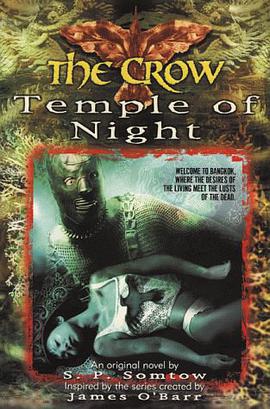

具体描述
这是一本值得认真研读的书。
不仅是汽车行业企业家,所有志存高远的企业家,乃至经济学家、管理学家、社会学家、政治家……以及其他有识之士都值得认真读这本书。
通用汽车公司,美国一家闻名全球的百年汽车巨头。1953年它的总裁查尔斯?威尔逊曾在美国国会发出著名的豪言壮语:“在过去的几十年里,通用汽车公司已经成为美国商业的核心支柱,公司的经营状况可以影响整个美国的经济形势……我一直认为那些对国家有利的事情必然对通用有利,反之亦然。”
美国一直自诩为坐在四个轮子上的国家,1962年通用汽车在美国市场占有率曾高达50.7%。美国与通用可谓二二而一。从全球讲,直到2008年被丰田超越之前,过去75年通用公司一直是全球最大的汽车生产商。然而,这个庞然大物在2009年6月1日上午8时正式宣布申请破产保护,成为美国制造业史上最大的一宗破产保护案,震动了美国,也震撼了全世界。人们不能不惊讶地问:谁搞垮了通用!威廉?荷斯坦对通用汽车公司进行了近10年的调查研究,访谈了近百位从总裁到工人的通用人,写了这本著作:《谁搞垮了通用》!
《谁搞垮了通用》引导我更多地去阅读一些关于通用汽车公司历史的和当前状况的文献。我越读越深深地感到,通用汽车公司的破产,其意义已远远超越通用公司乃至企业界本身,我们必须从人类社会发展的视野和深度来理解和探究这一难得的案例。
通用汽车公司是怎么垮的?直接的原因当然是亏损巨大。2005年通用累计亏损额高达865亿美元,而2007年财报显示,该公司亏损额达387亿美元,创下公司成立100年来最大年度亏损额。此后亏损也没有得到明显改善,以至2009年4月23日首席财务官宣布,6月1日到期的10亿美元债务将无法偿还。与此同时,通用汽车在金融和资本市场的信用直线下降,2001年4月,通用汽车每股股价仍是94.63美元,而到2009年5月29日股价创历史最低,收报仅75美分,申请破产保护已是唯一的选择了。
那么,为何如此亏损?答案是通用汽车市场销售额锐减,市场占有率越来越低。
这样显赫的名牌汽车为什么卖不出去?答案是产品质量差(油耗高、故障多)而价格高,丧失了与日本丰田以及其他汽车公司的市场竞争力。
难道通用汽车技术差?通用汽车一直拥有(至今仍是如此)世界一流的技术。在破产前十年中,总裁们一直在努力开发“世界第一”的新产品,而且事实上他们也达成了目标。例如研发了举世无双的GMS生产体系、Onstar车载系统等先进技术,开发了新Camaro和配有电动推进系统的雪弗兰Volt等具有先进竞争力的车型……为什么通用汽车不能卖得更便宜些?因为生产成本高。于是,几个原因很自然地浮现水面了:积重难返的落后管理方式,领导对市场判断的迟钝和失误,缺乏管理创新和技术创新,生产效率低下以及劳资关系紧张等等。 In November, GM CEO Rick Wagoner appeared before Congress to ask for $25 billion to bail out the struggling Big Three automakers. To critics like Thomas Freidman and Mitt Romney, it was a sign that the American auto industry should be led out to pasture; if the Japanese are better at making cars, they said, then we should let them do it. To defenders, the loss of the country's largest manufacturing sector would be an incomprehensible disaster. Nearly every day, the debate rages on the op-ed pages. Billions of dollars and millions of jobs hang in the balance. In Why GM Matters, William Holstein goes deep inside GM to show what's really happening at the country's most iconic corporation. Where critics say that GM has sat on its hands while the market changed, Holstein demonstrates that GM has already radically retooled its entire operation, from manufacturing and cost structure to design. Where pundits say we'd be better off without GM, he shows how inextricably linked GM and the nation's economy still are: The country's largest private buyer of IT, the world's largest buyer of steel, the holder of pensions for 780,000 Americans, GM accounts for a full 1 percent of our country's GDP. A dollar spent on GM has profoundly different consequences from a dollar spent on Toyota. Following a diverse cast of characters--from Rick Wagoner, the controversial CEO, to design director Bob Boniface, to Linda Flowers, a team leader on the line in Kansas City--Holstein examines the state of GM's health and builds a persuasive argument that GM is essential to our nation's well-being and, with the right economic climate, ready to compete with Toyota as one of the biggest global automakers.
作者简介
Review
"At a time when GM and the domestic auto industry are in acute crisis, this book makes sense of what has happened--and what should happen next. Bill Holstein is an extremely knowledgeable and perceptive journalist, and his book is a must-read for anyone who cares about the future of the American auto industry." - Alex Taylor, Fortune magazine
Product Description
In November, GM CEO Rick Wagoner appeared before Congress to ask for $25 billion to bail out the struggling Big Three automakers. To critics like Thomas Freidman and Mitt Romney, it was a sign that the American auto industry should be led out to pasture; if the Japanese are better at making cars, they said, then we should let them do it. To defenders, the loss of the country's largest manufacturing sector would be an incomprehensible disaster. Nearly every day, the debate rages on the op-ed pages. Billions of dollars and millions of jobs hang in the balance.
In Why GM Matters, William Holstein goes deep inside GM to show what's really happening at the country's most iconic corporation. Where critics say that GM has sat on its hands while the market changed, Holstein demonstrates that GM has already radically retooled its entire operation, from manufacturing and cost structure to design. Where pundits say we'd be better off without GM, he shows how inextricably linked GM and the nation's economy still are: The country's largest private buyer of IT, the world's largest buyer of steel, the holder of pensions for 780,000 Americans, GM accounts for a full 1 percent of our country's GDP. A dollar spent on GM has profoundly different consequences from a dollar spent on Toyota.
Following a diverse cast of characters--from Rick Wagoner, the controversial CEO, to design director Bob Boniface, to Linda Flowers, a team leader on the line in Kansas City--Holstein examines the state of GM's health and builds a persuasive argument that GM is essential to our nation's well-being and, with the right economic climate, ready to compete with Toyota as one of the biggest global automakers.
目录信息
读后感
评分
评分
评分
评分
用户评价
相关图书
本站所有内容均为互联网搜索引擎提供的公开搜索信息,本站不存储任何数据与内容,任何内容与数据均与本站无关,如有需要请联系相关搜索引擎包括但不限于百度,google,bing,sogou 等
© 2026 onlinetoolsland.com All Rights Reserved. 本本书屋 版权所有




















